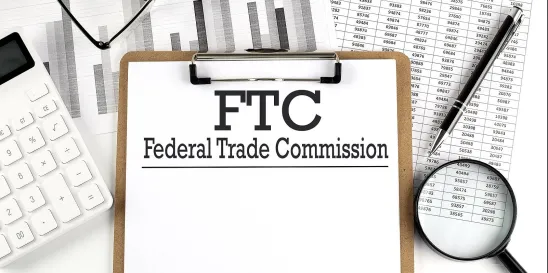The Federal Trade Commission (FTC) released a new proposed rule to ban junk fees, which are unexpected, hidden, and “bogus” charges that are often applied later in a transaction. The FTC announced the proposed rule on October 11, 2023 after receiving 12,000 comments from consumers about how these fees impact them. The FTC is currently “seeking a new round of comments on a proposed junk fee rule,” according to a press release issued by the agency.
Junk fees include charges added when purchasing concert tickets online, making hotel and resort reservations, changing airline booking and seat choice fees, paying utility bills and renting an apartment. Junk fees are sometimes called partitioned pricing, drip pricing or shrouded pricing, according to Ashish Pradhan of Cornerstone Research. Consumers told the FTC that sellers often don’t say what the fees are for, and if they’re getting anything in return for paying them.
“All too often, Americans are plagued with unexpected and unnecessary fees they can’t escape. These junk fees now cost Americans tens of billions of dollars per year—money that corporations are extracting from working families just because they can,” FTC Chair Lina M. Khan stated today. “By hiding the total price, these junk fees make it harder for consumers to shop for the best product or service and punish businesses who are honest upfront. The FTC’s proposed rule to ban junk fees will save people money and time and make our markets fairer and more competitive.”
The FTC estimates that junk fees can result in “tens of billions of dollars per year in unexpected costs” for consumers, and more than 50 million hours of time spent searching for the total price of short-term lodging and tickets for live events per year.
What Is the FTC Junk Fee Proposed Rule?
The proposed rule requires businesses to include all mandatory fees to be disclosed in pricing and prohibits sellers from applying any hidden fees during the transaction. The FTC said that this would help consumers “know exactly how much they are paying and what they are getting and spur companies to compete on offering the lowest price.”
Specifically, the Junk Fee Proposed Rule bans:
- Hidden fees. These fees drive up the price of purchases, often before the transaction is complete. The proposed rule also bars businesses from advertising prices that exclude or hide mandatory fees.
- Bogus fees. The FTC said that companies often charge “bogus fees.” The agency characterizes these fees as charges that consumers are asked to pay without knowing what their purpose is. The proposed rule requires businesses to tell consumers what these fees are for, what the amount is up front and if the fees can be refunded.
The proposed rule allows the FTC to issue monetary penalties against noncompliant companies and provide refunds to affected consumers.
Junk Fee Regulatory Measures from Other Federal Agencies
The Federal Communications Commission (FCC)
The FTC isn’t the only federal agency targeting junk fees. Other federal agencies are also acting against a variety of add on fees. The Federal Communications Commission (FCC) started implementing its Broadband Consumer Labels tool aimed at increasing price transparency.
“No one likes surprise charges on their bill. Consumers deserve to know exactly what they are paying for when they sign up for communications services. But when it comes to these bills, what you see isn’t always what you get,” said FCC Chairwoman Jessica Rosenworcel on March 23, 2023. “Instead, consumers have often been saddled with additional junk fees that may exorbitantly raise the price of their previously agreed-to monthly charges. To combat this, we’re implementing Broadband Consumer Labels, a new tool that will increase price transparency and reduce cost confusion, help consumers compare services, and provide ‘all-in-pricing’ so that every American can understand upfront and without any surprises how much they can expect to be paying for these services.”
The Consumer Financial Protection Bureau (CFPB)
Additionally, in March, the Consumer Financial Protection Bureau (CFPB) released a report on the use of junk fees “in deposit accounts and in multiple loan servicing markets, including the auto, mortgage, student, and payday/small loan sectors,” according to Greenberg Traurig.
“Americans are fed up with the junk fees that are creeping across the economy,” said CFPB Director Rohit Chopra in the FTC press release. “The FTC’s proposed rule will protect families and honest businesses from race-to-the-bottom abuses that cost us billions of dollars each year. If finalized, the CFPB will enforce the rule against violators in the financial industry and ensure that these firms play fairly.”
The Department of Housing and Urban Development (HUD)
The Biden Administration and the Department of Housing and Urban Development in a July 19, 2023, press release, specifically address add-on fees in rental housing. “Earlier this year, we called for reform in the housing industry to increase transparency for renters across the country, reflecting the Biden-Harris administration and the Department of Housing and Urban Development’s commitment,” said HUD Secretary Marcia L. Fudge in the FTC press release.
According to HUD rental application fees can be up to $100 or more per application, and, importantly, they often exceed the cost of conducting the background and credit checks. Given that prospective renters often apply for multiple units over the course of their housing search, these application fees can add up to hundreds of dollars.
The Department of Transportation (DOT)
The Department of Transportation in a March 2023 press release addressed aggravating airline fees: after DOT secured commitments from major U.S. airlines to provide free rebooking, meals, and hotels when they are responsible for stranding passengers. Dot stated that they were working to stop airlines from forcing parents to pay to sit next to their kids by requiring airlines to disclose hidden fees for things like extra bags. DOT stated that they helped secure billions of dollars in refunds for passengers whose flights are canceled.
In 2022, Secretary Buttigieg pressed U.S. airlines to do more for passengers who had a flight canceled or delayed because of the airline, by informing the CEOs of the 10 largest U.S. airlines that the DOT would publish a dashboard on amenities and services provided such as rebooking, meals, or hotels in the event of a controllable delay or cancellation. Prior to Buttigieg's urging, none of the 10 largest U.S. airlines guaranteed meals or hotels when a delay or cancellation was within the airlines’ control, and only one offered free rebooking. As of March 2023, all of the 10 largest U.S. airlines guarantee meals and rebooking, and nine guarantee hotels when an airline issue causes a cancellation or delay.
What’s Next?
Consumers can submit comments to the FTC electronically for 60 days once the notice of proposed rulemaking is published in the Federal Register. Consumers can also send written comments to the FTC—instructions on how to do this can be found in the Federal Register notice under the “Supplementary Information” section.





 />i
/>i

